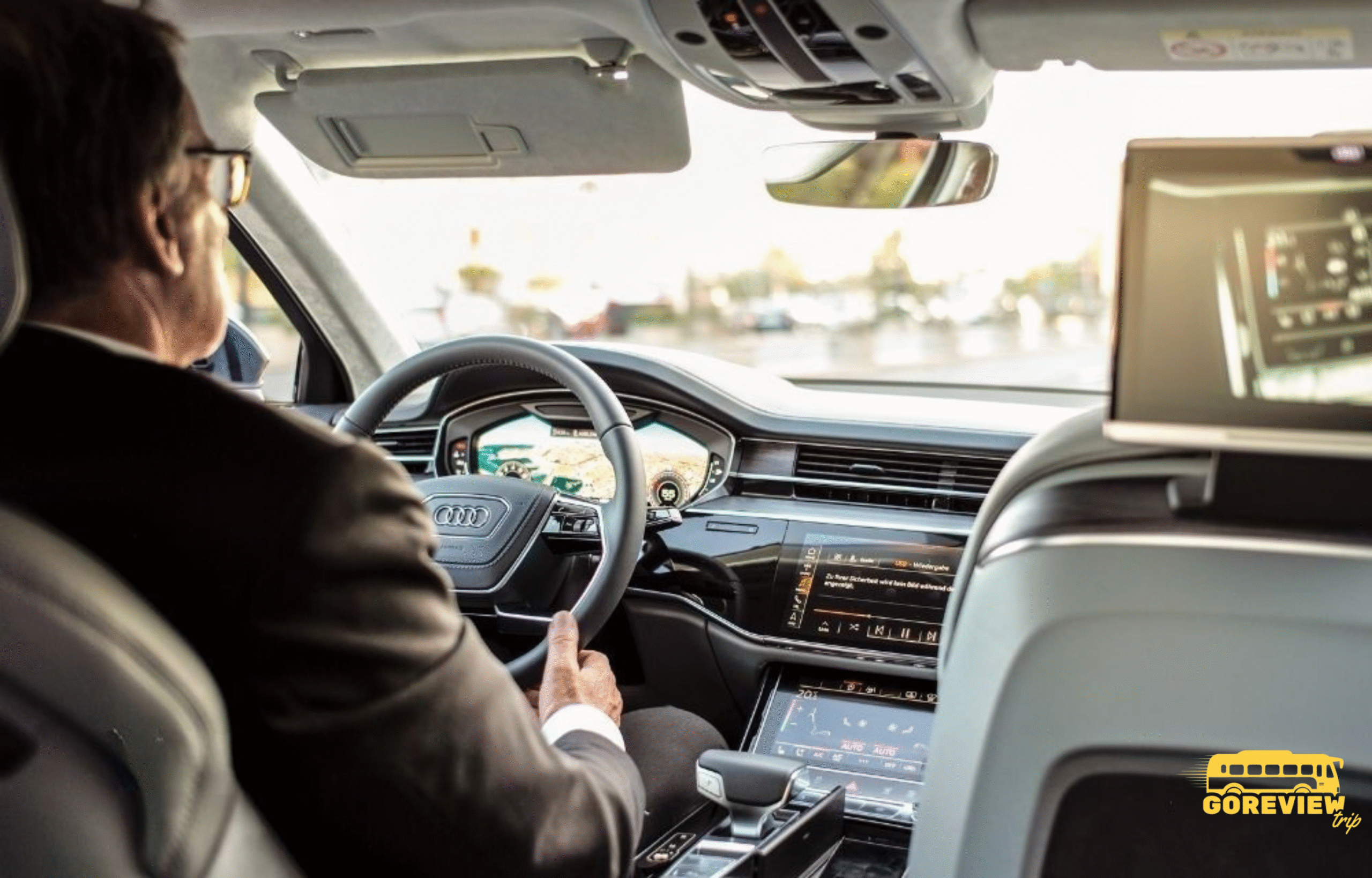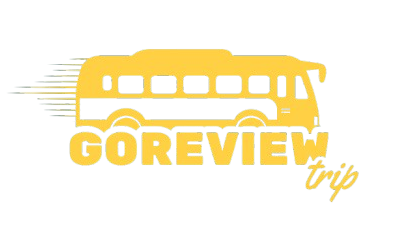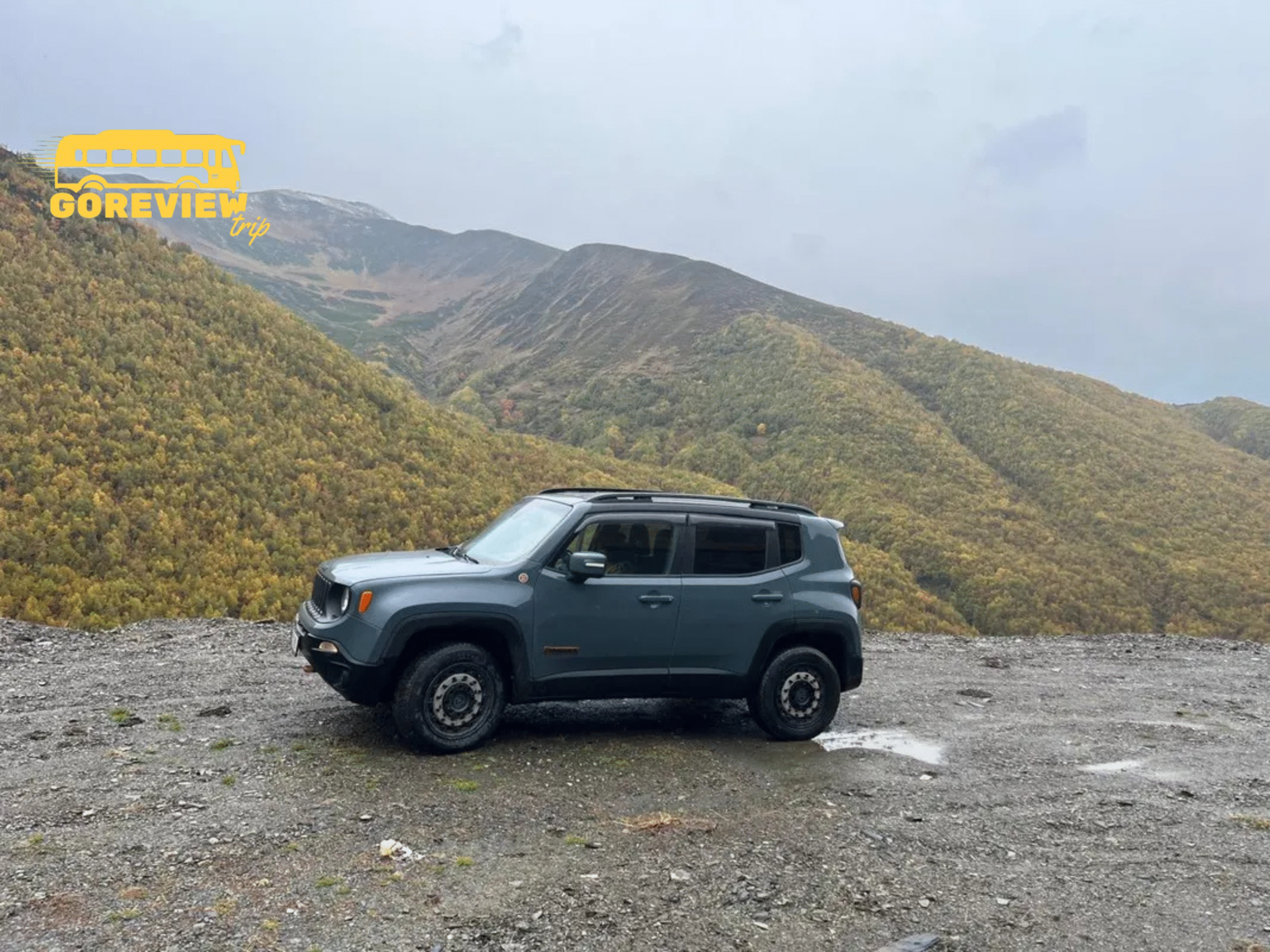Hey there, fellow travelers and savvy consumers. Lyra here. For years, I’ve navigated the globe on my own terms, and one of the biggest lessons I’ve learned is that the best solutions are often hiding in plain sight. We’re all familiar with the usual suspects for car rentals—the giant agencies at the airport with their long queues and standardized fleets. But what if I told you there’s another option, one that could land you a newer, better car, sometimes for a very specific purpose?
That brings us to a question I see pop up frequently in travel forums and hear from friends whose cars are in the shop: “Can I rent a car from a dealership?”
The short answer is a resounding yes, you absolutely can. However, it’s not as straightforward as walking into any dealership and grabbing a set of keys. Renting from a dealership is a different game with its own set of rules, advantages, and specific situations where it truly shines. It’s an alternative to traditional car rental that many people don’t even know exists.
As someone who obsesses over finding the smartest way to travel and manage life’s little logistical hurdles, I’ve dug deep into this topic. This isn’t just about getting from Point A to Point B; it’s about doing it smarter. In this ultimate guide, we’ll unpack everything you need to know about dealership rental programs.
Here’s what we’ll cover:
- The “How”: Understanding the two main ways you can rent from a dealership.
- The “Why”: The compelling reasons this might be your best option.
- Dealership Rentals vs. Traditional Agencies (Hertz, Avis, Enterprise): A head-to-head comparison.
- The Step-by-Step Guide: How to find and book a dealership rental.
- The Cost Breakdown: What to expect financially.
- Pro-Tips from a Pro-Traveler: My personal secrets for getting the best deal.
- Crucial FAQs: Answering all your burning questions.
So, buckle up. Let’s explore the world of dealership car rentals and see if it’s the right move for you.
Table of Contents
- 1 The Two Worlds of Dealership Rentals
- 2 The Hidden Advantages: Why Rent From a Dealership?
- 3 Dealership Rental vs. Traditional Agency: A Head-to-Head Battle
- 4 Your Step-by-Step Guide to Renting From a Dealership
- 5 The Financials: What Does It Actually Cost?
- 6 Lyra’s Pro-Tips for Dealership Rentals
- 7 Frequently Asked Questions (FAQ)
- 8 The Final Verdict: Is Renting From a Dealership for You?
The Two Worlds of Dealership Rentals
First, it’s crucial to understand that “renting from a dealership” isn’t a single, uniform service. It typically happens in one of two ways, and knowing the difference is key to managing your expectations.
1. Official Dealership Rental Programs
This is the most direct answer to our question. Many major car manufacturers have realized there’s a market for renting their specific vehicles directly to consumers. Brands like Toyota, Ford, Nissan, and even some luxury brands like BMW and Mercedes-Benz have established their own rental programs that operate right out of their local dealerships.
These aren’t just informal arrangements; they are branded, structured services. For instance, you might see “Toyota Rent a Car” or “Ford Rent-A-Car” advertised.
The primary purpose of these programs is twofold:
- A “Try Before You Buy” Supercharger: This is the biggest selling point. Are you on the fence about buying a new Honda CR-V or a Ford F-150? A standard 15-minute test drive tells you very little. Renting the exact model for a weekend allows you to truly live with the car. You can test its cargo space with your family’s gear, see how it handles your daily commute, check its real-world gas mileage, and see if it actually fits in your garage. It’s the ultimate extended test drive.
- A Revenue Stream and Service Solution: These programs serve as a profit center for the dealership. They also provide a high-quality temporary vehicle for customers whose own cars are in the dealership’s service center for an extended repair, especially if all the free “loaner” cars are already taken.
2. Service Loaners & Courtesy Cars
This is the more common, yet less direct, way to “rent” from a dealership. When you take your car in for service, especially for warranty work or a major repair that will take several days, the dealership may offer you a “service loaner” or “courtesy car.”
Now, are these free? Sometimes. If you’re a loyal customer or the repair is a major warranty issue, the dealership might provide one at no charge as a courtesy. However, in many cases, especially for non-warranty work, there’s a daily fee. This fee is often competitive with or even lower than traditional rental agencies.
While technically a “rental,” the primary purpose here is customer retention for the service department, not public rental. You often can’t just walk in off the street and ask for a service loaner. It’s almost always tied to you having a vehicle currently being serviced by them.
The key takeaway is this: Official rental programs are open to the public, while service loaners are primarily for service customers. For the rest of this guide, we’ll focus mainly on the official programs, as they are the true rental alternative.
The Hidden Advantages: Why Rent From a Dealership?
So, why go to the trouble of seeking out a dealership rental instead of just clicking on the Hertz or Enterprise app? The advantages can be significant, depending on your needs.
- Advantage 1: Drive the Latest and Greatest Models. Rental agencies often buy base-trim models and keep them in their fleet for a couple of years. Dealerships, on the other hand, use their rental programs as a showcase. You are far more likely to get a car from the current model year, often with higher trim levels and more features. They want you to fall in love with the heated steering wheel and the premium sound system.
- Advantage 2: The Ultimate “Try Before You Buy” Experience. I can’t stress this enough. Spending $40,000+ on a new vehicle is a massive decision. Renting the exact model you’re considering for a few days is an invaluable research tool. Does the infotainment system drive you crazy? Is the driver’s seat comfortable on a long trip? Is it powerful enough for highway merging? A dealership rental answers these questions definitively.
- Advantage 3: Model-Specific Guarantees. Have you ever booked a “Ford Focus or similar” from a rental agency, only to be given a car you actively dislike? Dealerships solve this problem. If you book a Toyota Highlander, you get a Toyota Highlander. This is a game-changer if you need a specific type of vehicle for a trip (e.g., an all-wheel-drive SUV for a ski trip) or simply want to experience a particular car.
- Advantage 4: Pristine Vehicle Condition. Because these cars are part of the dealership’s ecosystem—often slated to be sold as “Certified Pre-Owned” vehicles later on—they are typically maintained meticulously by factory-trained technicians. The standards for cleanliness and mechanical upkeep are often higher than at a volume-focused rental agency.
- Advantage 5: A Potential Path to a Better Deal. If you rent a car for a “try before you buy” period and decide you love it, you’re now in a great negotiating position. You can often negotiate to purchase the exact car you rented at a slight discount, as it’s now technically a used vehicle. At the very least, the rental fee may be credited toward your purchase.
Dealership Rental vs. Traditional Agency: A Head-to-Head Battle
To make the choice clearer, let’s put dealership rental programs in the ring with traditional rental giants like Hertz, Avis, and Enterprise.
The Verdict:
- Choose a Dealership Rental if: You want to test drive a specific new car, you prioritize vehicle quality and newness, or you need a temporary car while yours is being serviced at that dealership.
- Stick with a Traditional Rental Agency if: You need the lowest possible price, require a one-way rental, need the convenience of an airport pickup, or don’t care about the specific make and model you drive.
Your Step-by-Step Guide to Renting From a Dealership

Ready to give it a try? Here’s how to navigate the process like a pro.
Step 1: Identify Your Needs & Goals
First, clarify why you’re doing this.
- Trying to buy? Pinpoint the exact make, model, and even trim you’re considering.
- Need a replacement? What’s the minimum size/type of vehicle you need?
- Special occasion? Looking for something fun like a convertible or a sporty model for a weekend getaway?
Step 2: Locate Participating Dealerships
This is the most important step and requires a bit of detective work. You can’t just assume every Toyota or Ford dealer has a rental counter.
- Start with Google: Use specific search terms. Don’t just search for “car rental.” Search for “Toyota Rent a Car near me,” “Ford Rent-A-Car [your city],” or “dealerships that rent cars in [your city].”
- Go to the Manufacturer’s Website: Many car brands have a dedicated page on their main corporate site for their rental programs. This page often includes a dealer locator tool specifically for rental services.
- Call the Big Guys: Identify the largest, highest-volume dealerships in your area. They are the most likely to have the capital and customer base to support a rental program.
Step 3: Make the Call (This is Key!)
While some have online forms, the best way to get accurate information is to pick up the phone. When you call, don’t just ask the main receptionist. Ask to be transferred to the “Rental Department” or “Service Loaner Coordinator.”
Have a list of questions ready. Here’s your script:
“Hi, I’m interested in your public car rental program. I’m not a service customer right now. Can you tell me:
- Do you rent cars to the general public?
- What models do you currently have available for rent? (Mention the specific model you want).
- What are your daily and weekly rates?
- Are there any mileage restrictions or caps?
- What are the driver’s age and license requirements?
- What are the insurance requirements? Do I need to use my own policy?”
Step 4: Understand the Requirements
The requirements are generally similar to traditional agencies but can have some specific quirks.
- Valid Driver’s License: A given.
- Proof of Insurance: This is a big one. Unlike traditional agencies that sell you a Collision Damage Waiver (CDW/LDW), many dealerships require you to have your own comprehensive and collision auto insurance policy. They will ask for your policy card and may even call your insurance company to verify that your coverage extends to rental vehicles. Confirm this before you go!
- Credit Card: They will need a major credit card for the rental payment and a security deposit. The deposit can be several hundred dollars, so ensure you have enough available credit.
- Age Requirements: The minimum age is typically 21 or 25, just like with major agencies. Drivers under 25 can expect to pay a “young driver” surcharge.
Step 5: Review the Rental Agreement Carefully
Read the fine print. Pay close attention to:
- Mileage Caps: Many dealership rentals have a daily mileage limit (e.g., 150-200 miles per day). Exceeding this limit will incur a per-mile fee. This is a major difference from the “unlimited mileage” often offered by traditional agencies.
- Geographic Restrictions: Some contracts may prohibit you from taking the vehicle out of state. If you’re planning a road trip, clarify this upfront.
- Fuel Policy: It’s almost always “full-to-full.” You receive the car with a full tank and are expected to return it full to avoid high refueling charges.
Step 6: Inspect the Vehicle
Just like with any rental, do a thorough walk-around before you leave the lot. Use your phone to take a video or photos of the car’s condition, paying attention to any existing scratches, dings, or scuffs. Ensure this is noted on the rental paperwork to protect yourself from being blamed for pre-existing damage.
The Financials: What Does It Actually Cost?
Let’s talk money. Is it cheaper to rent from a dealership? The answer is: it depends.
- Daily Rates: Expect daily rates to be in the range of $45 to $125 per day, depending on the model. A Toyota Corolla will be on the lower end, while a Ford Expedition or a luxury sedan will be on the higher end. These rates are often competitive with what you’d pay at Enterprise for a similar class of vehicle.
- Security Deposit: Expect a hold of $250 to $500 to be placed on your credit card. This is refunded after you return the car in good condition.
- Insurance Costs: This is the hidden variable. If the dealership requires you to use your own policy, there’s no extra daily insurance fee from them. If you don’t have personal auto insurance or your policy doesn’t cover rentals, you may not be able to rent from them at all. Traditional agencies make a lot of money selling insurance waivers, which can add $20-$40+ per day.
- Mileage Fees: If you exceed the daily mileage cap, fees can range from $0.25 to $0.50 per mile. This can add up quickly on a long trip.
Cost Scenario:
Imagine renting a mid-size SUV for 3 days.
- Dealership Rental: $70/day + taxes. Mileage cap of 150 miles/day. You use your own insurance. Total Cost = ~$230 (assuming you stay within the 450-mile limit).
- Traditional Agency: $60/day + taxes + $25/day for their insurance waiver. Unlimited mileage. Total Cost = ~$280.
In this scenario, the dealership is cheaper. However, if you plan to drive 800 miles, the agency’s unlimited mileage would make it the better value.
Lyra’s Pro-Tips for Dealership Rentals
As a seasoned traveler, I’ve learned to look for the edges. Here are my personal tips for making the most of your dealership rental experience.
- Tip 1: Leverage Your Service Relationship. If you’re already a service customer, you’re golden. When you book your service, immediately ask about the availability and cost of a rental. You’re their ideal rental candidate, and they’ll be more inclined to work with you.
- Tip 2: Ask About Weekend Specials. Dealerships are busiest Monday through Friday. They sometimes offer discounted weekend rates (e.g., rent Friday to Monday for a special price) to keep their rental cars from sitting idle. It never hurts to ask.
- Tip 3: Inquire About Buying the Rental. If you’re doing a “try before you buy” and fall in love with the car, always ask: “Is this specific vehicle for sale?” You might get a great deal on a barely-used, perfectly maintained car.
- Tip 4: Call Multiple Dealerships of the Same Brand. Don’t assume the rates and policies at one Ford dealer are the same as another just ten miles away. Prices and model availability can vary, so a couple of quick calls can save you money.
- Tip 5: Be Flexible with Your Dates. Just like with airlines, if you can shift your rental by a day or two, you might find better availability or rates.
Frequently Asked Questions (FAQ)
Let’s clear up some of the most common questions once and for all.
1. Do all car dealerships rent cars? No, definitely not. It’s an ancillary service offered only by some, usually larger, dealerships that are part of a manufacturer’s official rental program (like Toyota Rent a Car) or have a robust service loaner fleet.
2. Can I rent a specific model I want to buy? Yes! This is one of the primary benefits. While they might not have every single trim level in their rental fleet, your chances of renting the exact model you’re considering are extremely high, which is impossible at a traditional agency.
3. Is insurance included when renting from a dealership? Generally, no. Most dealerships require you to provide proof of your own full-coverage auto insurance that extends to rental vehicles. This is a key difference from traditional agencies that will gladly sell you their own insurance waivers (CDW/LDW).
4. Are there mileage limits on dealership rentals? Often, yes. Mileage caps of 100 to 200 miles per day are common. This is to keep the vehicles “low-mileage” for their eventual sale. If you’re planning a long-distance road trip, a traditional agency with unlimited mileage is likely a better choice.
5. Can I rent a car from a dealership for a one-way trip? Almost never. The logistics are not set up for it. You will be expected to return the vehicle to the exact same dealership where you picked it up.
6. Is it cheaper than renting from Enterprise or Hertz? It can be, especially if you have your own insurance and don’t plan on driving long distances. You save on the expensive insurance waivers, but you might pay for extra mileage. You need to do the math for your specific trip.
The Final Verdict: Is Renting From a Dealership for You?
So, after all this, can you rent a car from a dealership? Yes. Should you? It all comes down to your situation.
Renting from a dealership isn’t a replacement for the entire traditional rental industry. It’s a fantastic, situational tool for the smart consumer. It’s for the person who wants to make a more informed car purchase. It’s for the driver who values quality and newness over rock-bottom prices. It’s for the loyal customer who needs a reliable ride while their car is in the shop.
The convenience of airport locations and one-way rentals means that for many of my own travels, I’ll still turn to the big agencies. But for that extended test drive before a major purchase, or for a weekend trip where I want to drive something specific and new, you can bet I’ll be making a few calls to my local dealerships.
The next time you need a temporary set of wheels, think beyond the usual suspects. You might just find that the perfect car, in perfect condition, is waiting for you at a dealership just down the road.
Happy travels—and happy driving.






